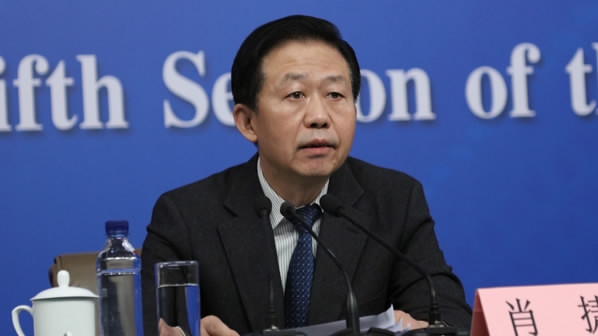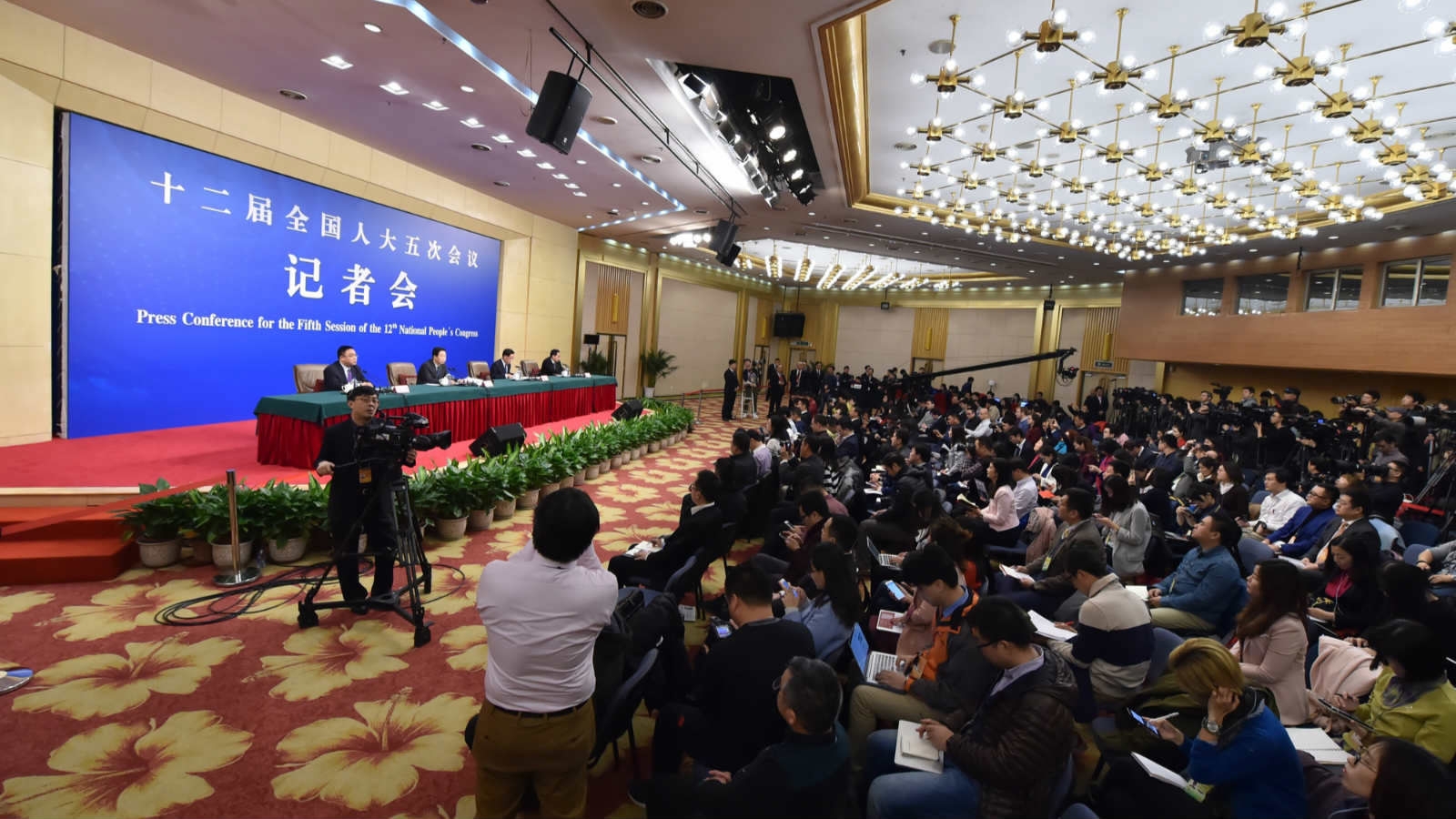
Politics
10:44, 07-Mar-2017
China's Minister of Finance briefs media on finance, taxation reform
Updated
10:58, 28-Jun-2018

China's Finance Minister Xiao Jie and Assistant Finance Minister Dai Bohua on Tuesday briefed journalists on China's financial performance last year, and finance and taxation reforms this year, at a press conference on the sidelines of the annual meeting of the National People's Congress in Beijing.
On individual income tax reform
Xiao said authorities were undertaking research and design for the plan on individual income tax reform, combining comprehensive and classification-based reforms to build up a system that is suitable for China’s national conditions.
The reform would take more items into consideration, including remuneration for personal service and others related to people’s livelihood to reduce the tax burden, Xiao said.
On public–private partnership (PPP)
Xiao said the PPP in China is still in its early stages. Progress has been made in the sector, with a total of 1,351 projects having been signed and deployed by the end of last year. The amount of investment reached 2.2 trillion yuan, with a deployment rate exceeding 30 percent.
The regulations on PPP projects and prevention of risks should be on the agenda as Xiao pledged to create a more favorable environment for investment.

VCG Photo
VCG Photo
On local governmental debts
"The risk of debts in China is controllable in general," Xiao said when asked about the financial status of local governmental debts. He said the illegal activities did exist in some areas and the ministry would continue its efforts to improve the management system.
On fiscal expenditure
“Frankly speaking, it is not an easy task to keep revenue and expenditure in balance,” Xiao told media. The ministry will strengthen its efforts in sectors including poverty reduction, education, social welfare, and healthcare, while cutting the government spending on public receptions, vehicles and overseas trips.
On VAT and tax reduction
The value-added tax (VAT) reform has seen business taxes replaced with VAT, resulting in companies making total tax savings of nearly 600 billion yuan last year, which is well above the target.
On fiscal deficit and 2017 budget
"China sets its government fiscal deficit this year at 2.38 trillion yuan (about 345 billion US dollars), or 3 percent of its GDP, an increase of 200 billion yuan over last year. The debt-to-GDP ratio of Chinese government is fairly low in comparison to other nations," Xiao said.
The minister also said that the budget report was transparent as the expenditure in national defense and foreign affairs had already been listed in the draft.
7km

SITEMAP
Copyright © 2018 CGTN. Beijing ICP prepared NO.16065310-3
Copyright © 2018 CGTN. Beijing ICP prepared NO.16065310-3